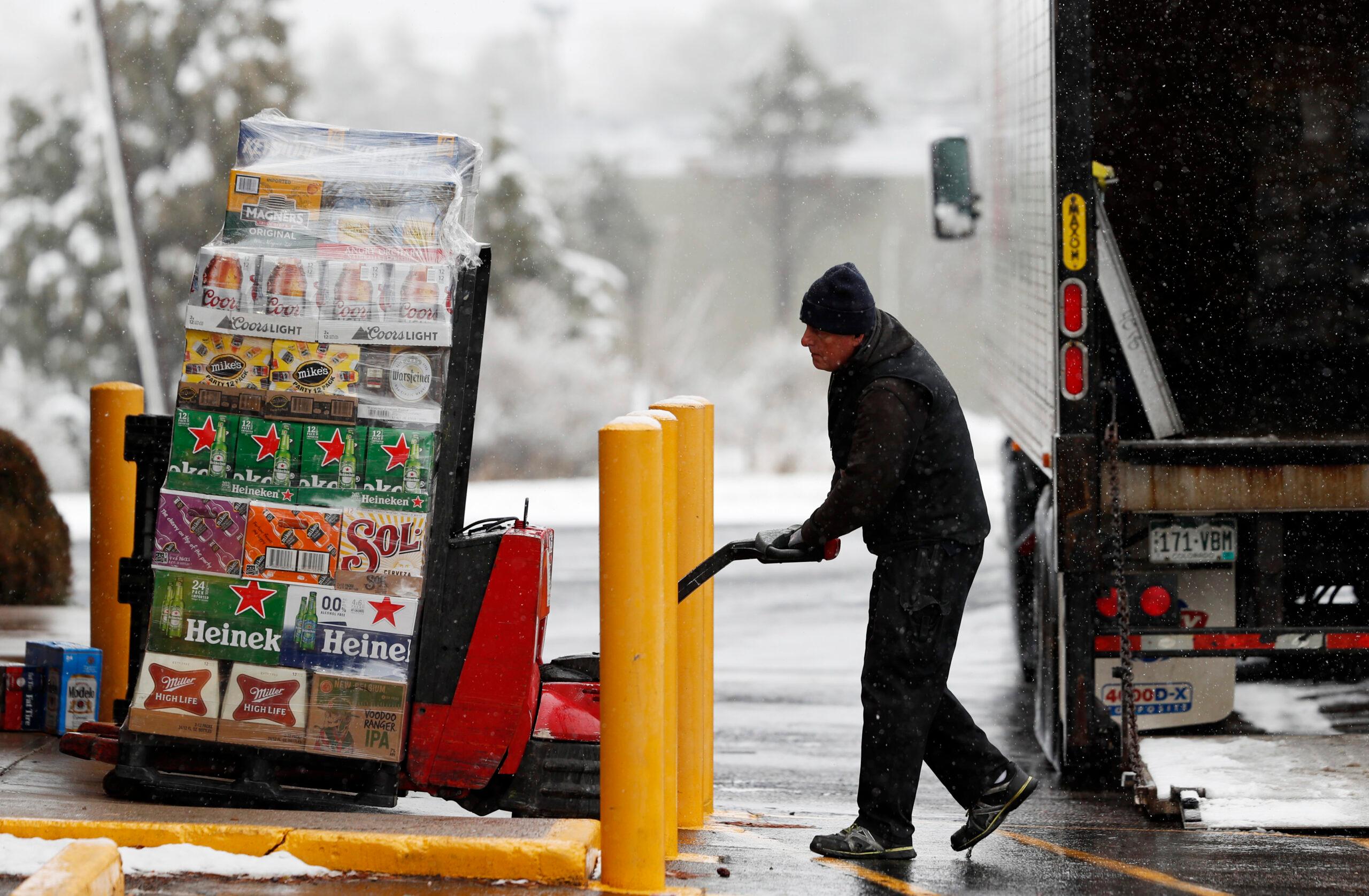
Colorado voters could see up to four ballot measures this fall asking them to change the state’s alcohol laws.
Those initiatives would let grocery and convenience stores sell wine, allow for third-party deliveries of alcohol, increase the number of liquor licenses a single company can hold and give local jurisdictions control over alcohol licensing.
However, these efforts have drastically different backers and are setting up a fight between large national grocery chains and Colorado’s locally owned independent liquor stores.
Depending which pass — if any — they could have massive ramifications for alcohol sales in the state.
What the dueling initiatives would do
The initiatives allowing wine sales in grocery stores and third-party deliveries are being promoted by national grocery chains and food delivery companies. An issue committee called Wine in Grocery Stores has been formed to support both measures. DoorDash and Instacart have both contributed over $400,000 each to the effort. Target and Albertsons Safeway are also supporters, to the tune of more than $24,000 each.
“Coloradans want convenience. They want choice,” said Sheila MacDonald, who represents the Wine in Grocery Stores committee. “They want Starbucks, a deli, a Covid-booster shot, organic produce and a specialty cheese section at the grocery store, along with beer and wine.”
On the other side, liquor store owners are worried the changes could put them out of business.
“We see just from forecasting and how the model is set up … at least 800 to 1,000 of those stores going out of business,” says Chris Fine, executive director of the Colorado Licensed Beverage Association. That would be over half of all local independent liquor stores in Colorado.
In response, the Colorado Licensed Beverage Association is backing a ballot initiative that would give local jurisdictions full control over liquor licensing. This would require grocery stores that want to sell wine or spirits to apply to local authorities to expand their liquor license, “just like a retail liquor store does today,” explains Fine.
The process would involve a public hearing, abiding by municipal laws and local community considerations. Fine believes local officials would be more hesitant to approve expanded licenses that could put independent stores in their jurisdiction out of business.
The final initiative seeks to eliminate the distinction between retail liquor stores and liquor-licensed drugstores. Retail liquor stores are currently limited to two liquor licenses per business, a cap that’s set to increase to four by 2027. Liquor-licensed drugstores can currently have eight licenses per business, but after 2037 there will be no limit. The initiative is being pushed by large national liquor store chains looking to expand in Colorado. It’s not supported by small independent liquor stores.
All four ballot initiatives are in the process of gathering signatures. To qualify for the general election, the initiatives need 124,632 valid signatures by Aug. 8. The way the verification process works, campaigns need to collect tens of thousands more than the minimum to be assured a spot on the ballot.
History of alcohol laws in Colorado
Where, when, and how retail alcohol is sold in Colorado has been a hot topic for over a decade now, as various groups have pushed to open up the state’s once-restrictive laws.
There are currently over 1,600 local and independent liquor stores across the state and many are minority-owned. The Colorado Licensed Beverage Association, which represents many of the state’s liquor stores, says 65 percent of its members use English as a secondary language and half are women.
“It’s usually a family business, where they’ve gone all in and you see that all over the state,” said Fine.
In contrast, Colorado’s grocery market is dominated by six major out-of-state chains — Walmart, Amazon-Whole Foods, Costco, Kroger-King Soopers, Target and Albertsons Safeway. All of those companies are involved in the push for grocery stores to be allowed to sell wine.
In 2008, Colorado state lawmakers passed a bill allowing liquor stores to open on Sundays, rolling back a Prohibition-era law. Prior to the change, the only alcohol that could be purchased on Sundays was 3.2 percent beer from groceries or convenience stores.
For decades, chain businesses were kept out of selling full-strength beer by a law that prevented a retail liquor license holder from operating more than one store. But by 2016 grocery stores were pushing for a change. They had a ballot measure set for the fall before a ‘grand compromise’ between liquor stores and grocery stores was reached with the help of former brewpub owner and then-governor John Hickenlooper. The complex deal allowed grocery chains to start selling beer while offering a few changes to benefit liquor stores.
An effort to reach another deal on alcohol sales failed at the legislature this year. A bipartisan bill that would have created a task force to study ways to modernize Colorado’s existing alcohol laws and build consensus on reform died in the Colorado Senate.









